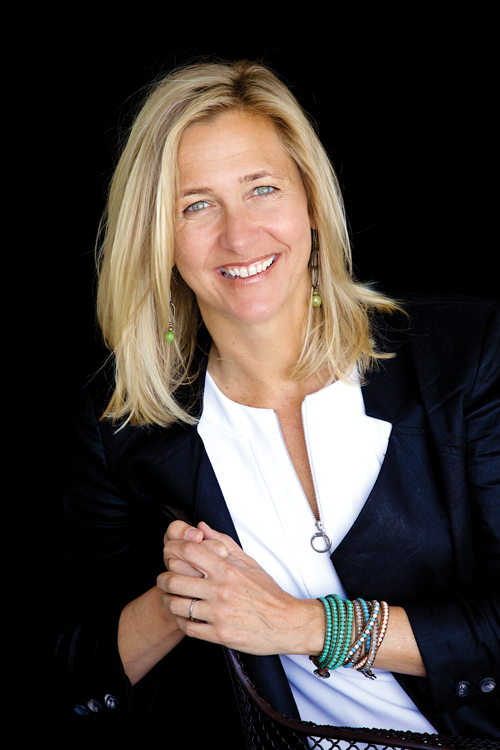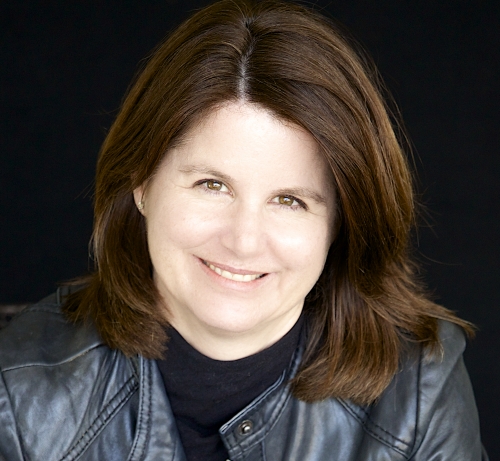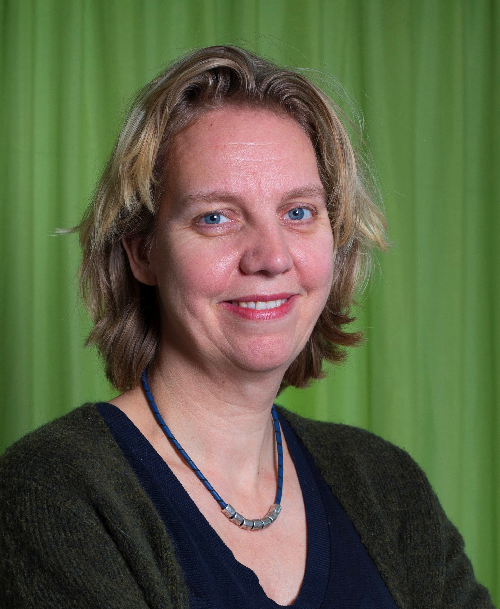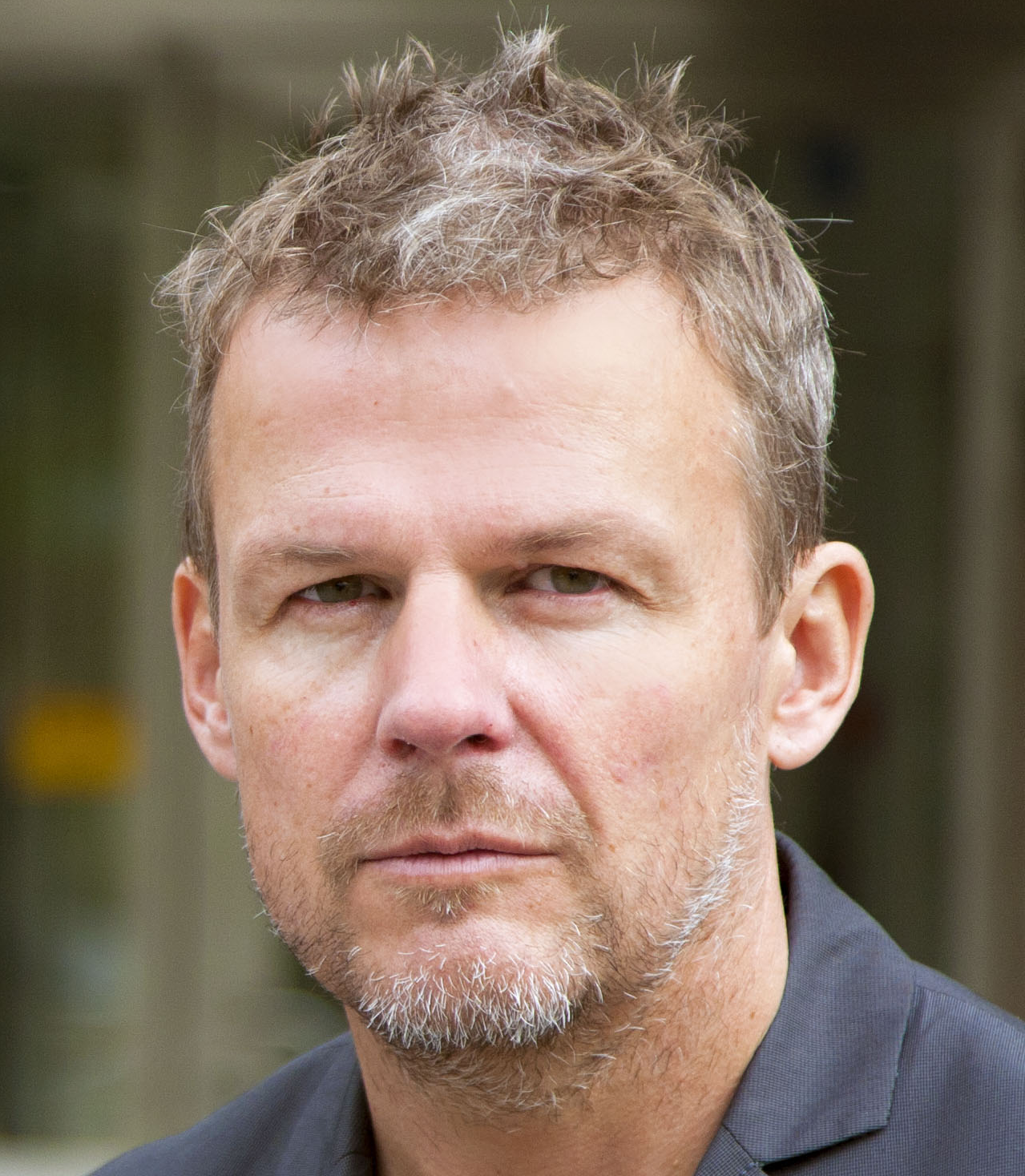Team Effort: An International Coalition of Broadcasters Pools Resources to Compete with Streaming Giants
By Ken Jacobson
In the face of perceived dominance in the documentary marketplace by such major SVODs as Netflix and Amazon, an international coalition of broadcasters, led by ro*co films international, is pooling its resources to acquire and co-produce a small number of high-profile documentaries that otherwise might have been gobbled up by the giant digital platforms. Formed just prior to the 2016 Sundance Film Festival, the coalition is made up primarily of European Public Service Providers, along with a smattering of commercial broadcasters and satellite networks.
At Sundance 2016, the coalition acquired its first film, Nanfu Wang’s Hooligan Sparrow. Recently, the coalition made its first co-production deal by signing on with Impact Partners, which, along with Radical Media, is producing Liz Garbus' The Fourth Estate, a behind-the-scenes observational portrait of The New York Times. The film, now in production, is the coalition's first foray into the documentary series arena and will screen on Showtime in the US .
The coalition is comprised of VPRO (The Netherlands); SVT (Sweden); NRK (Norway); DR (Denmark); RTE (Ireland); DBS/YesDocu (Israel); BBC/Storyville (UK); Telefonica (Spain); YLE (Finland); and VRT (Belgium). (Since its first year, the coalition no longer includes any theatrical distributors or US broadcasters.)
While the coalition members did not share financial information with Documentary, according to Axel Arnö, commissioning editor of SVT Documentaries, the amounts are believed to be “a bit more than for a normal acquisition.” Annie Roney, founder and CEO of ro*co films international, describes the deals as “top-tier offers for a premier documentary broadcaster in the territory. If a filmmaker’s first priority is revenue and a Netflix Originals offer is on the table, a coalition offer won’t compete. But if a filmmaker is also interested in a film’s impact and developing their relationships with the international broadcast community, a coalition offer can be competitive.”
For filmmakers and sales agents who normally work piecemeal to cobble together international markets, the ease of a “one-stop shop” deal with sizable budget figures attached that also includes the reach of these broadcasters is a highly attractive proposition. On the other hand, any time that individual buyers in an industry get together to make collective decisions, that raises certain questions. For example, if someone turns down a coalition’s initial offer and later wishes to come back for an individual license agreement, will they be in a reduced bargaining position? The coalition is too new to know exactly what the implications will be for individual actors or for the marketplace as a whole. But in a market that has been dominated in recent years by SVODs, the coalition represents a significant development.
Roney and colleague Cristine Platt Dewey, managing director of ro*co films international, along with coalition members Axel Arnö of SVT and Nathalie Windhorst, head of factual acquisition of VPRO, weighed in by email on the coalition’s goals, inner workings, desired outcomes and challenges.
Documentary: What were the conditions that were in place in the industry that led you and others to think that something needed to be done?
 ANNIE RONEY & CRISTINE PLATT DEWEY: Twice a year for the past 17 years, we have met one-on-one in Cannes with all the major global players acquiring documentary film. We started to hear a steady drumbeat of a single complaint by broadcasters everywhere. These acquisition executives and commissioning editors, who had been consistently championing documentaries through co-production and acquisitions for decades, were now increasingly shut out of opportunities to support, acquire and broadcast them. The rise of sweeping global deals by digital platforms, and the agents that negotiated them, left them with no buying power.
ANNIE RONEY & CRISTINE PLATT DEWEY: Twice a year for the past 17 years, we have met one-on-one in Cannes with all the major global players acquiring documentary film. We started to hear a steady drumbeat of a single complaint by broadcasters everywhere. These acquisition executives and commissioning editors, who had been consistently championing documentaries through co-production and acquisitions for decades, were now increasingly shut out of opportunities to support, acquire and broadcast them. The rise of sweeping global deals by digital platforms, and the agents that negotiated them, left them with no buying power.
As a foreign sales agent/distributor sitting in the middle serving both the broadcasters and the filmmakers, we felt the need to problem-solve.
NATHALIE WINDHORST: We run a best-of-fest documentary strand on Dutch public television, where we want to show the most relevant films to our audience. It’s more and more this kind of documentary that SVOD platforms like Netflix or Amazon are also interested in. Think of City of Ghosts, or Icarus. Due to their big budgets, a public broadcaster, buying just for the Netherlands and with a humble budget, cannot have access to these films anymore. Especially if these documentaries tackle important political issues, we feel it’s a big loss if they are not available to watch on free public television, where they can reach a big audience and create a debate. This frustration is shared among other broadcasters in Europe, so that’s why we feel that if together we can make a difference, we have to try.
AXEL ARNÖ: It’s pretty obvious that the documentary world is changing fast. A couple of years ago, a public broadcaster like SVT could be quite certain that we would be able to buy every new documentary that we wanted, especially since we have no local competition. With SVOD giants paying millions of dollars for global rights, we risk missing many of the coolest new titles. As PSBs (Public Service Broadcasters), we have always co-produced and pre-bought films. We accommodate festival runs, we guarantee good exposure and can help create real impact, but sometimes this is not enough. For new films with all rights available, we realized that we don’t have a chance to bid against Netflix and company. At least, not as individual broadcasters. We need to pool our resources to be competitive.
Documentaries have always been a core genre for PSBs, and we have a good knowledge of the industry and market. But we have to be proactive. We must continue the dialogue with filmmakers and producers, and we might have to make bigger investments in order to secure the most important films.
D: What was the original idea?
AR & CPD: We started small. We floated the idea of creating a coalition of international broadcasters who would agree to buy one single, unknown film at Sundance 2016.
D: What were your initial thoughts about the coalition?
NW: I like to work with my European buyer colleagues. We meet each other a lot already on festivals and often have a mutual taste in films. And we discuss the market together, so all have the same issues. And I like to work with ro*co; they have a good line-up and know what we need. The only fear I had was that I would end up buying a title in a coalition that I might not really want.
AA: At first, I was a bit hesitant. As I work for public service, I don’t like to make deals where one distributor gets preference over another. So I never signed any agreement.
D: What arrangements were made preceding Sundance 2016?
 AR & CPD: They [coalition members] signed deal memos for this unknown film with what we know to be their best terms, months before the festival. Then they all ranked the films they were most interested in. That gave ro*co a working list of films to pursue at the festival, with the guarantee of x number of territories and x number of dollars.
AR & CPD: They [coalition members] signed deal memos for this unknown film with what we know to be their best terms, months before the festival. Then they all ranked the films they were most interested in. That gave ro*co a working list of films to pursue at the festival, with the guarantee of x number of territories and x number of dollars.
D: How did the process work once you got to Sundance?
AR & CPD: Once at Sundance, we made sure to screen those films and add our feedback. When possible, we shared a link with coalition members. Ultimately, the decision did come down to ro*co making a call. When Hooligan Sparrow made the [Academy Award] short list for Best Documentary Feature that year, the process was validated.
D: Describe the process from your point of view.
NW: Ro*co introduces us to a project, gives us all the information available, a link if the film is done and then we discuss either by email or telephone conference what we think of the project. You are not forced to join. If we think of other possible partners that might be interested in this particular title, we try to get them on board as well. What is important to make it happen is that we act fast, faster than broadcasters normally do in their decision-making. And that we all make an effort in giving our best offer. So all together, we really can make a difference. [At Sundance 2016] we had a nice hotline on what we saw there and if we liked it or not. Lots of short meetings and emails and text messages during the festival. We were very much involved and it was a fun and hectic situation.
AA: It’s easy. The broadcasters included have agreed to pay a certain sum of money each for one film that premieres at Sundance. We have to agree on the selection, of course, but there are many good films to choose from. If no film is selected, or the collective offer is refused, the deal is off.
D: How did the deal evolve from Sundance 2016 into what it eventually became?
AR & CPD: We learned a lot [in] the first year. We included some of our favorite theatrical distributors, as well as some commercial broadcasters. It wasn’t practical to curate content that was going to work for all of them. We decided the next year to only include broadcasters and limit commercial broadcasters to the ones who have traditionally supported feature documentaries.
For the 2017 coalition, we began with the same process, and we were unsuccessful at picking up a film at Sundance. The marketing we did for the coalition resulted in us being contacted by Impact Partners with a project that required co-production funds. We felt the project made sense for the coalition and pitched it to them as a co-production opportunity. All of the original 2017 coalition members signed on, and we were also able to bring in the additional broadcasters.
We have now expanded to bring the same coalition together on other projects throughout the year. We facilitate a group phone call where the buyers interact with each other about the opportunity.
D: What is the competitive advantage for filmmakers to go with the coalition?
AR & CPD: Advantages include:
Their film will get local marketing and PR support.
Each broadcaster will do an expert job of dubbing or subtitling in the local language.
Broadcasters will have the opportunity to synch up their broadcasts and promote simultaneously.
The coalition opportunity can sometimes be paired with a digital opportunity.
Treating your international rights separately from your North American rights can often mean larger audiences and ultimately more revenue in the long term.
Filmmaker cachet among foreign commissioning editors; your next film would be something they would more likely consider as a co-production.
 NW: If you think as a filmmaker you have something important to tell to the world with your film, it’s still relevant to work with television. We will give lots of attention to your title; newspapers write about it before and after; TV shows will recommend it; and we are still able to reach a big audience who all see your film at the same time, which is a completely different experience than if you watch it on your own on your SVOD service. Sometimes we air on a specific relevant date, so your screening becomes a bit of an event. So, in the end, your film will reach a bigger audience and will have more impact.
NW: If you think as a filmmaker you have something important to tell to the world with your film, it’s still relevant to work with television. We will give lots of attention to your title; newspapers write about it before and after; TV shows will recommend it; and we are still able to reach a big audience who all see your film at the same time, which is a completely different experience than if you watch it on your own on your SVOD service. Sometimes we air on a specific relevant date, so your screening becomes a bit of an event. So, in the end, your film will reach a bigger audience and will have more impact.
AA: I would say that there are many advantages. Netflix has a lot of money, but no one knows their viewing figures or if they pay any taxes. And every film runs the risk of ending deep down in their vault with no exposure. We will never be able to compete financially if a rich SVOD really wants the film, but we can give exposure, festivals, news coverage, etc., as well as knowledge. And the PSB network in Europe is huge and super important if you really want your film to have an impact.
D: What outcome(s) are you looking for?
AR & CPD: For us, it’s always about increasing distribution, revenue and awareness for documentary films in as many places as we can.
D: How does all of this relate to sustainability in our industry, both for those on the industry side and filmmakers? Do you think the coalition’s efforts could result in greater sustainability for both sides?
AR & CPD: Absolutely. In one respect foreign buyers are stepping up in response to the competition; they are responding quicker to submissions with higher license fees. They recognize they have to be more competitive; that’s good for everyone.
D: What has been the response from filmmakers? Has there been any response from the SVOD platforms?
AA: I’ve heard nothing from the SVODs, but they never speak, anyway. The response from filmmakers has been positive. Listen, I totally understand that filmmakers and producers would go with the best offer, and I respect the people at Netflix and Amazon. They do great things. Just don’t forget that PSBs can give you more than money. And collectively, we invest a lot more in original programming than any SVOD!
D: What outcome(s) are you looking for?
NW: My expectations are humble: It’s an experiment I like to be part of! Let’s see what comes out of the ambitious American documentary series in production that we recently supported together. Even without an official coalition, we as public broadcasters realize it’s important to share our thoughts, interests and advice, and act together now and then. But it’s not at all my intention to get all my films via a coalition. It’s not even necessary. Luckily, the documentary world is full of talented people, and there are still many beautiful creative artistic films to choose from.
 AA: For the moment, it’s one of many new paths we are exploring. Hopefully, this coalition will give us a couple of cool films and new insights and contacts that are useful in the future.
AA: For the moment, it’s one of many new paths we are exploring. Hopefully, this coalition will give us a couple of cool films and new insights and contacts that are useful in the future.
D: Because you are doing only one or two films a year, how can you possibly mount a serious challenge to Netflix and the biggest of the SVODs and be considered a viable alternative? Isn’t this just a drop in the bucket?
AR & CPD: We’re in a position that allows us to understand the value of a Netflix opportunity relative to the value of other opportunities in the international market. Our intention is not to mount a serious challenge to Netflix; it’s to match a film with the right opportunity based on the filmmaker’s intention for the film. If a filmmaker’s first priority is revenue and a Netflix Originals offer is on the table, a coalition offer won’t compete. But if a filmmaker is also interested in a film’s impact and developing their relationships with the international broadcast community, a coalition offer can be competitive.
NW: Yes, it’s a drop in the bucket, but it’s still an important signal to the market that we feel these films deserve several platforms and as much impact as possible. If we can bring awareness of that among filmmakers, and show them we can act quickly and fight for their films, we have reached a lot already.
Ken Jacobson is a contributing editor at Documentary magazine and a festival and educational programmer.
